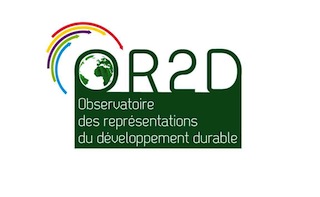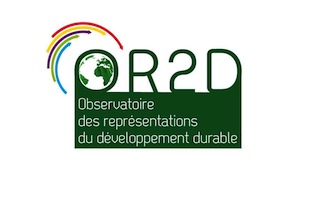Call for Papers
CALL FOR PAPERS « European Union and Sustainable development: Challenges and Prospects » University of Blaise Pascal - ESPE Clermont Auvergne Clermont-Ferrand, France 19 - 21 October 2016
Keynote Speakers
Over the last four or five decades, the European Union has increasingly sought to promote and implement the basic principles of sustainable development. Drawing on the history of sustainable development policy in the EU, the objective of this conference is to assess the current challenges Europe faces regarding sustainable development policy, while at the same time addressing the prospects for further progress in this area. In June 1972, the United Nations Conference on the Human Environment (Stockholm) proclaimed that « the natural resources of the earth, including the air, water, land, flora and fauna and especially representative samples of natural ecosystems, must be safeguarded for the benefit of present and future generations through careful planning or management, as appropriate » (principle 2). One month later, at the Paris Summit, European Heads of State and Government mentioned the « non material values » reconciling Development and Environment in Europe and launched the Community environmental policy (CEC, 1972). Carlo Scarascia-Mugnozza, the first Commissioner for the environment was appointed in 1973. Between 1973 and 1976, the First Action Program in the area of European Environment Policy was launched. The program, based on a top down approach and the division of ecological problems into sectors, « started with nature conservation, noise and waste policies » (Morand, Barzman, 2005). In 1986, the Single European Act included a title VII named“Environment in the Policy of the Community”. The article 130r mentioned that « the action by the Community relating to the environment shall have thefollowing objectives : (i) to preserve, protect and improve the quality of the environment;(ii) to contribute towards protecting human health;(iii) to ensure a prudent and rational utilization of natural resources ». So, one year before the Brundtland Report (1987) and its definition of sustainable development (« Sustainable development is development that meets the needs of the present without compromising the ability of future generations to meet their own needs »), the European path to sustainable development was already prepared. In 1997, the Treaty of Amsterdam explicitly inserted commitments to the principle of sustainable development. In particular, sustainable development was established by the countries of Europe as a Community objective in order « to promote economic and social progress for their peoples, taking into account the principle of sustainable development and within the context of the accomplishment of the internal market and of reinforced cohesion and environmental protection, and to implement policies ensuring that advances in economic integration are accompanied by parallel progress in other fields » (article 1). In 1998, following the insertion of sustainable development in the Amsterdam Treaty, the European Council requested the Commission to submit a strategy for promoting sustainable development (Cardiff Process). In 2001, the Gothenburg European Council adopted the Commission’s Sustainable Development Strategy, which calls for further development and rapid implementation of environmental integration. The main threats to sustainable development included : (1) emissions of greenhouse gases from human activity, causing global warming ; (2) severe threats to public health, posed by new antibiotic-resistant strains of some diseases ; (3) poverty and social exclusion effects ; (4) increases in life expectancy combined with low birth rates, threatening a slowdown in the rate of economic growth ; (5) the dramatic acceleration of bio-diversity loss in Europe; (6) transportation congestion approaching gridlock… From 2001 to 2014, the EU’s Contribution to sustainable development was associated with the Sustainable Consumption and Production and Sustainable Industrial Policy Action Plan (SCP-SIP). It included a series of proposals that would contribute to improving the environmental performance of products and increase the demand for more sustainable goods and production technologies (See the report, « A Decent Life for All: From Vision to Collective Action », June 2014). In this report, the EC recognized the need to build the right framework to put the world on a sustainable path to ensure a decent life for all by 2030. Symposium Topics To identify challenges and opportunities for sustainable development in the European Union, the conference organizers welcome papers on the following topics:
This work will have a historical significance (role of institutions) or thematic scope (Agriculture, climatic change, biodiversity loss, poverty and inequality, energy transition, water management and forestry, corporate social responsibility, circular economy, industrial ecology, degrowth, urban metabolism, social and solidarity economy, complementary currencies ...). Research which balances the universal aspect of that framework and takes into account different national realities is also welcome.
Research presenting results or questions regarding sustainable development from major European programs (Horizon 2020, ITN Marie Curie, Interreg, Feder…), and in particular alternative models in the social, economic, agricultural, educational and cultural fields.
Comparative research concerning the cultural and hermeneutical dimensions of sustainable development, including how the concept is interpreted and implemented differently in different national, cultural, historical, and political contexts. This research could highlight the challenges for sustainable development faced at different levels of implementation, while at the same time suggesting ways of surmounting them or turning them to an advantage.
Research into European Education for Sustainable Development. Since the United Nations Decade for Education of Sustainable Development (UNESCO, 2005 – 2014), Education for Sustainable Development means including key sustainable development issues into teaching and learning; for example, climate change, disaster risk reduction, biodiversity, poverty reduction, and sustainable consumption. It also requires participatory teaching and learning methods that motivate and empower learners to change their behaviour and take action for sustainable development. Education for Sustainable Development consequently promotes competencies such as critical thinking, imagining future scenarios and collaborative decision making. Work based on European comparisons in education for sustainable development or introducing debates on Educational Sciences are welcome.
Comparative research concerning National Strategy in Sustainable Development in Europe.
Expertise and involvement of civil society on sustainable development, such as management of water, sustainable mobility, waste collection and renewable energy. Scientific Committee Gerd Ahiert (Gesellschaft fur Wirtschaftliche Strukturforschung, Germany), Laurent Baechler (CIFE, European Institute), Angela Barthes (University of Aix Marseille, France), Eric Berr (Bordeaux University, France), Patricia Bilotta (Universidad Positivo, Brazil), Jérôme Blanc (SciencesPo, Lyon, France), Bruno Boidin (Lille Univerity, France), Dominique Bourg (University of Lausanne, Switzerland), Emilio Carral Vilarino (University of Santiago de Compostela, Spain), Bento Cavadas (ESE Santarem, Portugal), Landry Charrier (University of Blaise Pascal, Clermont-Ferrand, France), Pascale Combes-Motel (Auvergne University, France), Sarah Cornell (University of Stockholm, Sweden), Marisa Correia (ESE Santarem, Portugal), Brynhildur Davidsdottir (University of Iceland); Henry Dicks (University Lyon 3, France), Arnaud Diemer (University of Blaise Pascal, Clermont-Ferrand, France), Claude Gilles Dussap (Polytech, France) Suren Erkman (University de Lausanne, Switzerland), Sylvie Ferrari (University of Bordeaux, France) ; Catherine Figuière (University of Grenoble Alpes, France), Sandor Kerekes (University of Corvinus, Hungary), Alain Legardez (University of Aix Marseille, France), Elisabete Linhares (ESE Santarem, Portugal), Jean Bernard Marsat (IRSTEA, France), Guillaume Massart (University of Lausanne, Switzerland); Bernd Meyer (Gesellschaft fur Wirtschaftliche Strukturforschung, Germany), Jenneth Parker (Schumacher Institute, England), Constanza Parra (University of Leuven, Belgium), Francine Pellaud (HEP Fribourg, Switzerland) ; Kristin Vala Ragnarsdottir (University of Iceland), Tomas Ries (Univerity of Defense Security, Sweden), Nicolas Robin (University of Teacher Education St Gallen, Switzerland), Peter Schlyter (University of Stockholm, Sweden), Anne Snick (Club of Rome | EU Chapter), Ingrid Stjernquist (University of Stockholm, Sweden), Harald Sverdrup (University of Iceland), Ariane Tichit (Auvergne University, France), David Vallat (Université Lyon 1, France), Franck-Dominique Vivien (University of Reims, France), Tim Whitton (University of Blaise Pascal, Clermont-Ferrand, France) Organization Committee Fabienne Baudot (ESPE Clermont Auvergne, France) ; Landry Charrier (University of Blaise Pascal, France), Arnaud Diemer (University of Blaise Pascal, France), Florian Dierickx (University of Blaise Pascal, France), Ganna Gladkykh (University of Blaise Pascal, France), Manuel Eduardo Morales (University of Blaise Pascal, France), Timothée Parrique (University of Blaise Pascal, France), Julian Torres (University of Blaise Pascal, France), Tim Whitton (University of Blaise Pascal, France), Abdourakmane Ndiaye (University of Blaise Pascal, France). The Scientific Committee and the Organization Committee encourage you to submit your abstracts (600 words). The abstracts should be written in English, in German, in Spanish or in French, the official languages of the event. Deadlines
Prizes Two prizes will be awarded by the Scientific Committee:
Interested researchers should submit their paper before 30 August. The prizes will take the form of support for travel and accommodations for the symposium. |
| Online user: 1 | RSS Feed |

|


